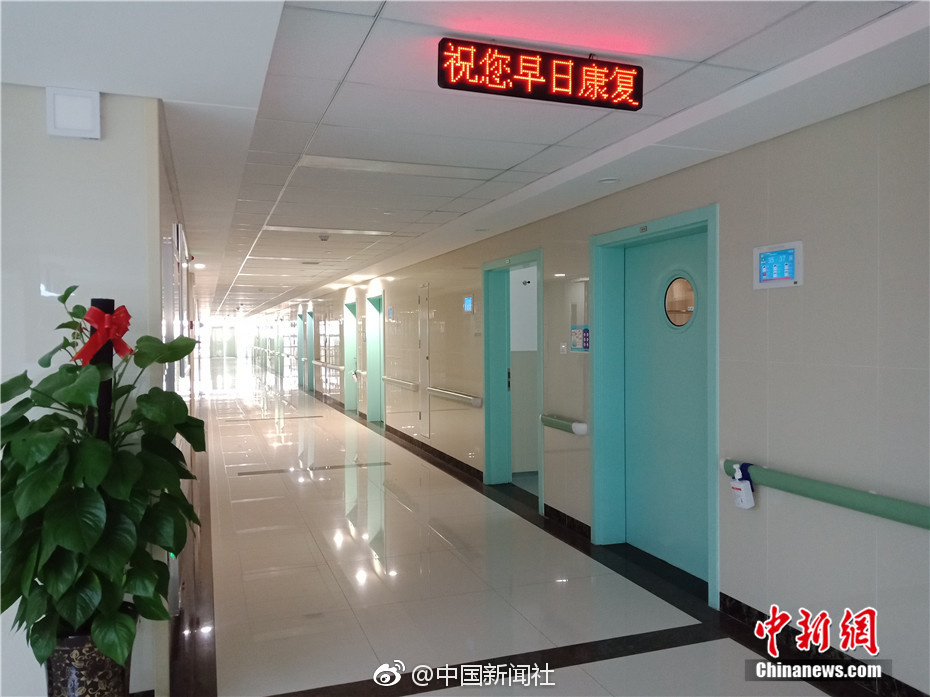
The five functional modules of the operating system are processor management, memory management, device management, file management and operation management. Processor management The most basic function of processor management is to process interrupt events. After configuring the operating system, various events can be processed.
The functions of the computer operating system include: processor management, memory management, device management, file management, job management and other functional modules. Processor management. The most basic function of processor management is to handle interrupt events. The processor can only detect interrupt events and generate interrupts and cannot process them.
Storage management is divided into several functions: storage allocation, storage sharing, storage protection, and storage expansion.Equipment management has the following functions: equipment allocation, equipment transmission control, and equipment independence. File management: file storage space management, directory management, file operation management, file protection.
The operating system should usually include the following five functional modules: (1) Processor management. When multiple programs are running at the same time, solve the problem of processor (cpu) time allocation. ( 2) Operation management. The program to complete an independent task and its required data constitute a task.
The function of the operating system is mainly reflected in the management of computer resources - microprocessors, memory, external devices, files and tasks. The operating system sets this management function into the corresponding program management module, and each management module is responsible for a certain function.That is, the five functions of the operating system.
The operating system has five functions: processor management: mainly controls and manages the work of the CPU. Storage management: mainly carry out memory allocation and management device management: mainly manage basic input and output device file management: responsible for the organization, storage, operation and protection of computer files, etc.

There are the following types of management systems: the management system of the finished product set. This kind of system is a stereotyped management system, which makes a small number of functional adjustments to the software through the parameter settings of the software.
Transaction Processing System (TPS): Operators and supervisors are used to input transactions, events, sort, list, merge updates, output detailed reports, lists and summaries, etc. Management Information System (MIS): Middle managers are used to input general transaction data and simple models to process routine reports.
Adgecal management system Academic management system is one of the most core management systems of the school, which is responsible for arranging and managing the school's teaching activities. It includes curriculum setting, teaching plan, teacher arrangement, examination management and other contents.
VMware vSphere: It is a virtualization management platform that can be used to manage virtual machines, storage and networks, etc. Nagios: It is an open source network monitoring system that can be used to monitor network devices, servers and applications, etc.
Financial subsystem: providing the function of financial management information; Decision support subsystem: make the logistics information system reach a higher level.
ERP management system brand Youyou, Jindie International Software, Wave Software, Dingjie Software, Zhenghang Software. Use friends.
1. System management refers to the information technology system that manages enterprises, and file management is one of the five major functions of the operating system.First, network management refers to the centralized management of resources on the network by network administrators through network management programs.
2. System Management regards organizational components as interrelated and interdependent systems, so it advocates applying the system concept to the management concept.
3. System management refers to the process of maintaining, managing and monitoring computer systems. As an important part of enterprise informatization construction, the importance of computer system management cannot be ignored.
UEFA Champions League live-APP, download it now, new users will receive a novice gift pack.
The five functional modules of the operating system are processor management, memory management, device management, file management and operation management. Processor management The most basic function of processor management is to process interrupt events. After configuring the operating system, various events can be processed.
The functions of the computer operating system include: processor management, memory management, device management, file management, job management and other functional modules. Processor management. The most basic function of processor management is to handle interrupt events. The processor can only detect interrupt events and generate interrupts and cannot process them.
Storage management is divided into several functions: storage allocation, storage sharing, storage protection, and storage expansion.Equipment management has the following functions: equipment allocation, equipment transmission control, and equipment independence. File management: file storage space management, directory management, file operation management, file protection.
The operating system should usually include the following five functional modules: (1) Processor management. When multiple programs are running at the same time, solve the problem of processor (cpu) time allocation. ( 2) Operation management. The program to complete an independent task and its required data constitute a task.
The function of the operating system is mainly reflected in the management of computer resources - microprocessors, memory, external devices, files and tasks. The operating system sets this management function into the corresponding program management module, and each management module is responsible for a certain function.That is, the five functions of the operating system.
The operating system has five functions: processor management: mainly controls and manages the work of the CPU. Storage management: mainly carry out memory allocation and management device management: mainly manage basic input and output device file management: responsible for the organization, storage, operation and protection of computer files, etc.

There are the following types of management systems: the management system of the finished product set. This kind of system is a stereotyped management system, which makes a small number of functional adjustments to the software through the parameter settings of the software.
Transaction Processing System (TPS): Operators and supervisors are used to input transactions, events, sort, list, merge updates, output detailed reports, lists and summaries, etc. Management Information System (MIS): Middle managers are used to input general transaction data and simple models to process routine reports.
Adgecal management system Academic management system is one of the most core management systems of the school, which is responsible for arranging and managing the school's teaching activities. It includes curriculum setting, teaching plan, teacher arrangement, examination management and other contents.
VMware vSphere: It is a virtualization management platform that can be used to manage virtual machines, storage and networks, etc. Nagios: It is an open source network monitoring system that can be used to monitor network devices, servers and applications, etc.
Financial subsystem: providing the function of financial management information; Decision support subsystem: make the logistics information system reach a higher level.
ERP management system brand Youyou, Jindie International Software, Wave Software, Dingjie Software, Zhenghang Software. Use friends.
1. System management refers to the information technology system that manages enterprises, and file management is one of the five major functions of the operating system.First, network management refers to the centralized management of resources on the network by network administrators through network management programs.
2. System Management regards organizational components as interrelated and interdependent systems, so it advocates applying the system concept to the management concept.
3. System management refers to the process of maintaining, managing and monitoring computer systems. As an important part of enterprise informatization construction, the importance of computer system management cannot be ignored.
 TNT Sports
TNT Sports
132.34MB
Check Bingo Plus
Bingo Plus
337.53MB
Check European Cup live
European Cup live
597.76MB
Check Casino free 100 no deposit
Casino free 100 no deposit
487.74MB
Check TNT Sports
TNT Sports
147.84MB
Check Casino Plus login register
Casino Plus login register
969.18MB
Check Casino Plus GCash login
Casino Plus GCash login
539.44MB
Check Casino Plus free 100
Casino Plus free 100
513.73MB
Check UEFA live free
UEFA live free
814.24MB
Check App to watch Champions League live free
App to watch Champions League live free
583.64MB
Check Bingo Plus stock
Bingo Plus stock
898.93MB
Check bingo plus update today Philippines
bingo plus update today Philippines
982.73MB
Check UEFA Europa League
UEFA Europa League
789.44MB
Check UEFA Europa League
UEFA Europa League
671.62MB
Check UEFA Champions League standings
UEFA Champions League standings
121.31MB
Check UEFA Europa League
UEFA Europa League
614.57MB
Check Bingo Plus stock
Bingo Plus stock
464.36MB
Check LR stock price Philippines
LR stock price Philippines
884.31MB
Check Hearthstone Arena class tier list 2024
Hearthstone Arena class tier list 2024
836.71MB
Check TNT Sports
TNT Sports
222.96MB
Check DigiPlus fair value
DigiPlus fair value
369.73MB
Check Casino Plus app
Casino Plus app
425.41MB
Check Hearthstone arena
Hearthstone arena
898.14MB
Check Hearthstone Arena Tier List
Hearthstone Arena Tier List
368.26MB
Check Casino Plus free 100
Casino Plus free 100
324.64MB
Check Bingo Plus stock
Bingo Plus stock
875.61MB
Check bingo plus update today Philippines
bingo plus update today Philippines
617.55MB
Check Bingo Plus stock
Bingo Plus stock
513.65MB
Check bingo plus update today Philippines
bingo plus update today Philippines
196.16MB
Check DigiPlus Philippine
DigiPlus Philippine
281.15MB
Check DigiPlus Philippine
DigiPlus Philippine
529.39MB
Check Hearthstone Arena win rate
Hearthstone Arena win rate
971.11MB
Check Hearthstone Arena class tier list 2024
Hearthstone Arena class tier list 2024
931.83MB
Check Casino Plus free 100
Casino Plus free 100
621.24MB
Check Casino Plus GCash login
Casino Plus GCash login
145.38MB
Check Casino redeem
Casino redeem
978.44MB
Check
Scan to install
UEFA Champions League live to discover more
Netizen comments More
2153 Casino Plus
2025-01-12 09:46 recommend
254 Walletinvestor digi plus
2025-01-12 09:15 recommend
553 DigiPlus
2025-01-12 09:04 recommend
1065 Hearthstone deck
2025-01-12 08:36 recommend
2239 UEFA Champions League live streaming app
2025-01-12 08:35 recommend